15 Old-Fashioned Cooking Tips You Should Never Use, Say Experts
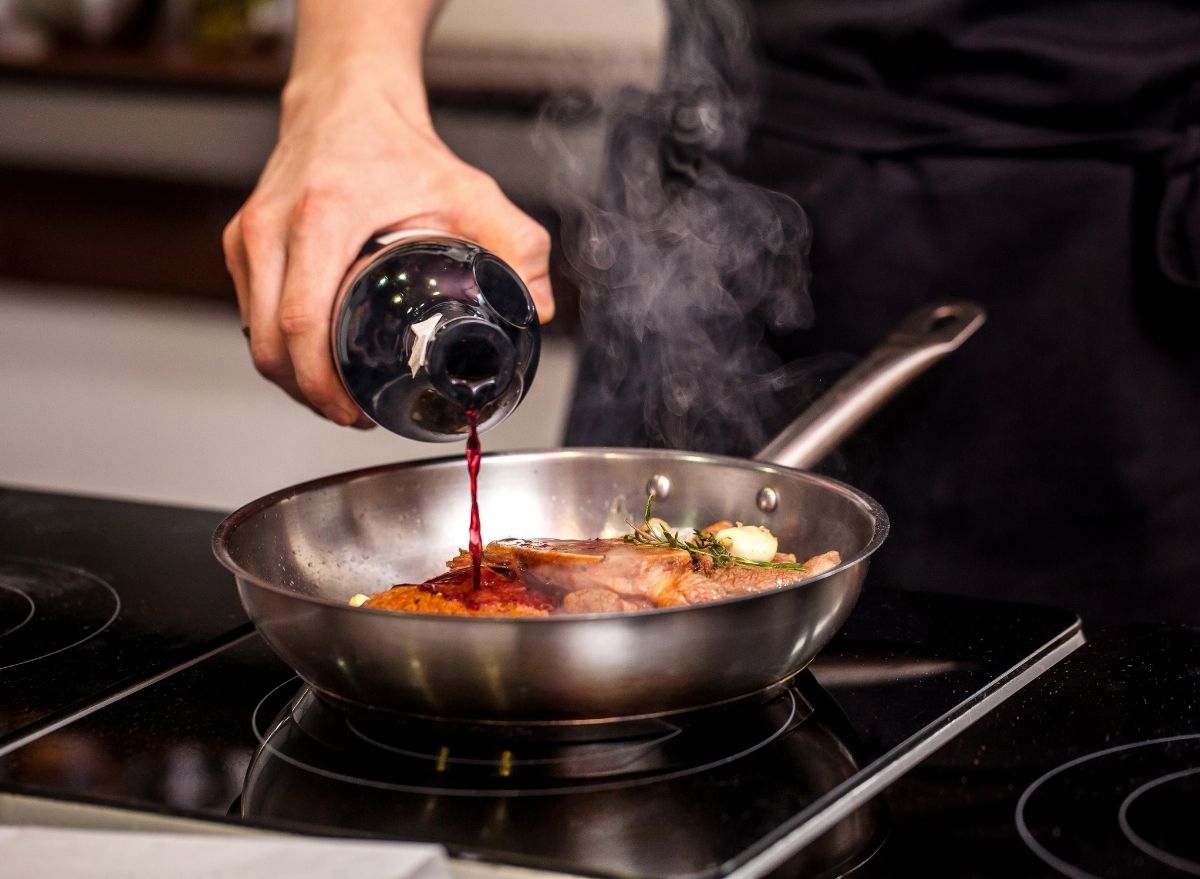
While there are cooking techniques and tips that have stood the test of time, there are also morsels of advice that you should take with a pinch of salt. We polled chefs, cookbook authors, and industry professionals about common cooking techniques that are better left in the past. Some are harmless, but not just not very effective, and others increase your risk of foodborne illness or worse. Here are 15 old-fashioned cooking tips you should never use. Plus, don’t miss 15 Old-Fashioned Cooking Tips That Really Work, Say Experts.
Use asbestos tiles to make your bread rise
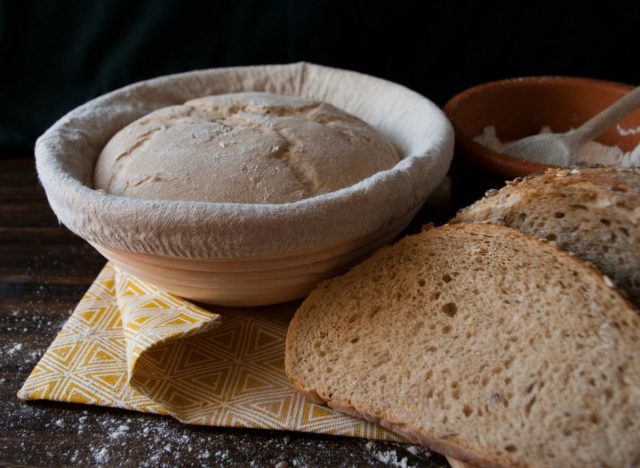
This is an odd one and you wouldn’t be able to find the material to do this anymore, but it is real. “This was usually done in the 60s,” says Lori Bogedin, chef/owner of Twigs Cafe. “But, asbestos was later found to be a carcinogen. So, it’s a big no to add to your recipes.” Julia Child even mentions this in one of her books, when in an attempt to make the oven hotter, her husband “slid a tile made of asbestos cement onto the oven rack to heat up with the oven: a perfect, affordable baking surface.” Not so much anymore.
Rinse chicken before cooking
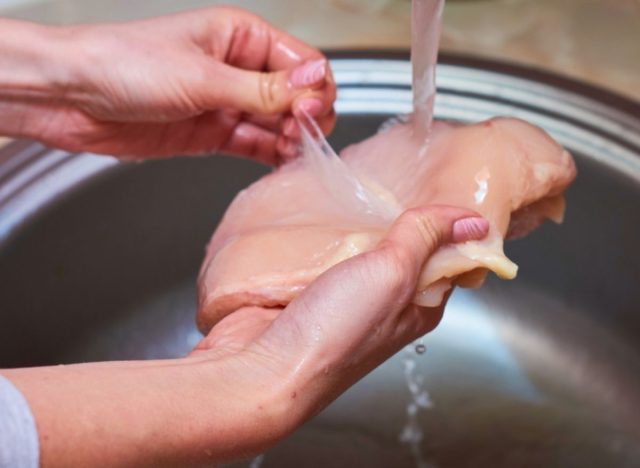
This technique is a big ‘no’, says cookbook author, chef, and recipe developer Brian Theis. “It can contaminate your sink and work surfaces with bacteria and increases your chances of food poisoning.”
Slamming the door of the oven will cause a cake or a soufflé to collapse
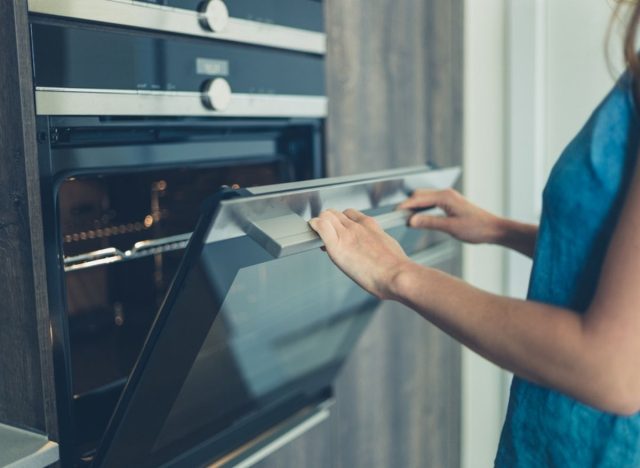
Ideally you shouldn’t open the door during cooking because your cooking time will change—you’re losing heat with the door open, says Theis.”But if you accidentally slam the door it won’t deflate anything. So slam away.”
Always bake your potatoes in foil
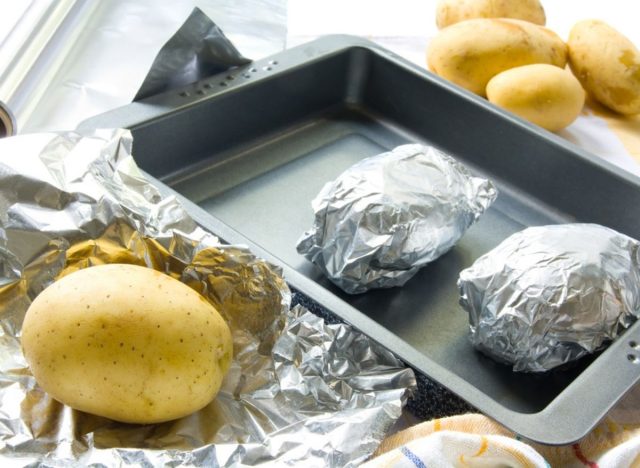
You want crisp skin and heat circulation, says Theis. “Just set them on the rack and bake away. Stab ’em with a fork, rub ’em with oil and salt if you like, just don’t wrap them in foil.”
To avoid “boilovers” when cooking pasta, add one tablespoon of cooking oil
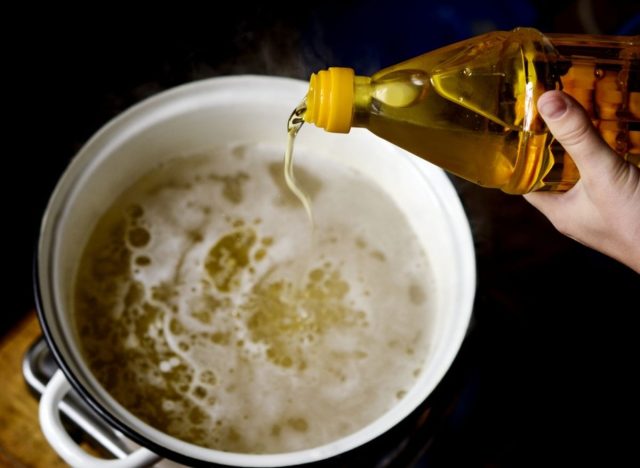
Nope, says Michael Cook, retired restaurant chef/owner and founder of My Conscious Eating. Adding oil to boiling pasta will only do more harm than good and will increase the probability of the pasta sticking together.
Alcohol cooks off while cooking
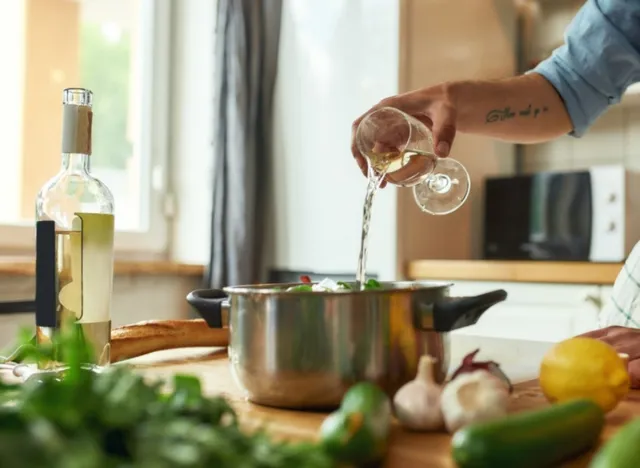
“It will depend on your spirit, what you are cooking, and the cooking vessel,” says Jim Mumford, cookbook author, chemical engineer, and creator of Jim Cooks Food Good! “Unless the spirit is ignited, my rule is that half of alcohol in the spirit will remain after 15 minutes of stovetop cooking, and 30 minutes while baking.”
All eggs have salmonella
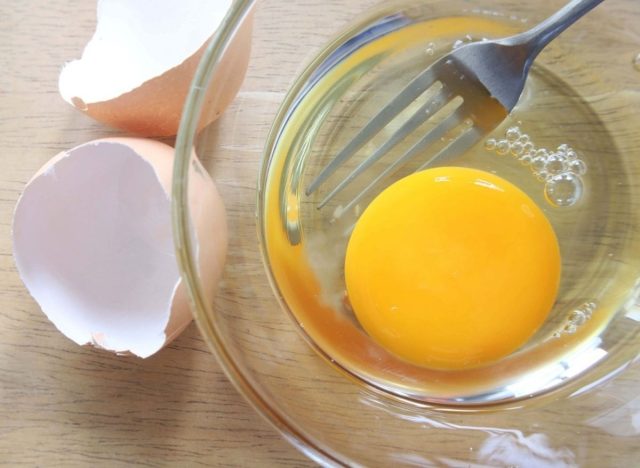
“The CDC estimates that there is a 0.005% chance an egg has been infected with salmonella, which is much lower odds than years ago,” says Mumford. “In fact, some studies show that properly farmed eggs have a probability far lower than this, with advancements in cleaning and UV technology.”
Pork should be cooked to 165 degrees Fahrenheit
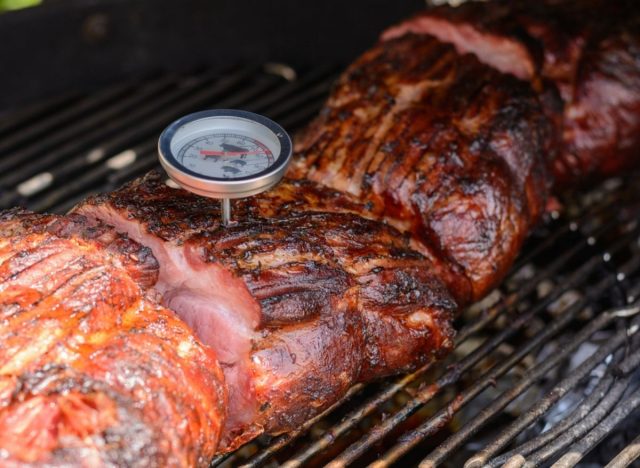
“Trichinosis was a big deal 40 years ago, with this parasite being very dangerous when consumed,” says Mumford. “Now, trichinosis is very rare, with the CDC estimating 16 cases annually. The FDA has since lowered the safe pork temperature to a beautiful 145 degrees Fahrenheit.”
Defrost raw meat on the counter before leaving for work
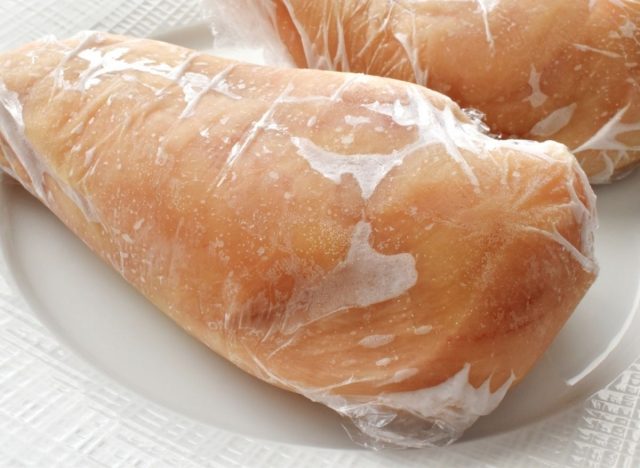
“Meat defrosts starting from the outside and works its way toward the interior,” says Gabriel Glasier, former executive chef and founder of Chef Travel Guide. “This allows dangerous bacteria to reproduce on the exterior as soon as it climbs above 40 degrees. Instead, defrost in the refrigerator overnight.”
Add vinegar or baking soda when hard boiling eggs to make the shells peel easier
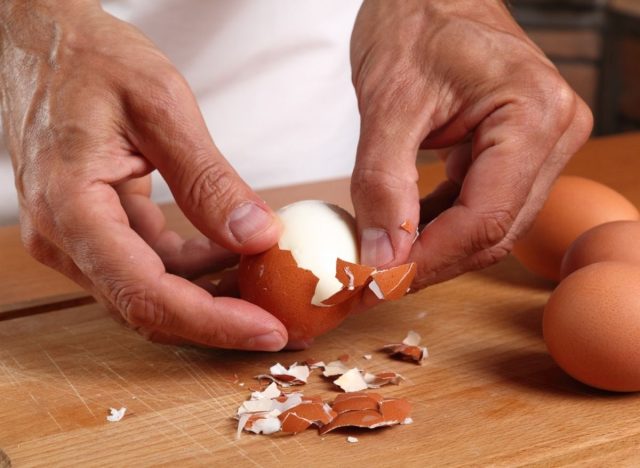
Instead, use older eggs. “As eggs age, the pH level rises and the inner membrane loosens its bond to the albumen (egg white),” says Glasier.
Don’t wash cast iron
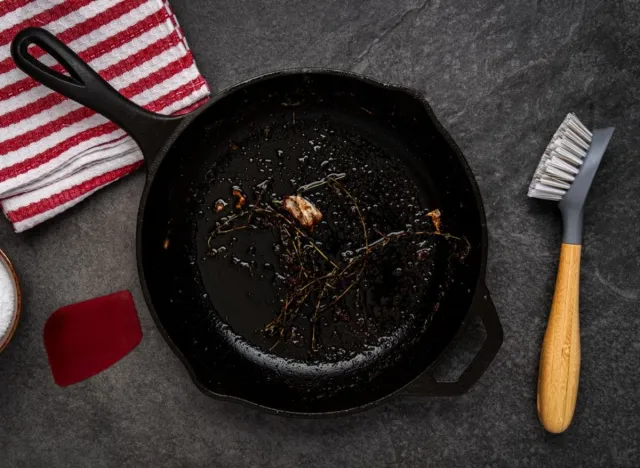
“Contrary to popular belief, most modern cast iron pans are perfectly fine to be washed with soap,” says Glasier. “However, it is still important to season it after washing, by rubbing it with oil and setting it on a burner until dry.”
Adding oil to pasta prevents the pasta from sticking
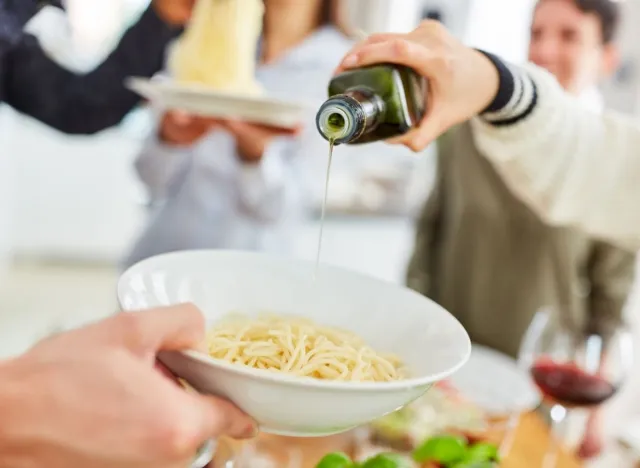
Actually, adding oil to pasta water while boiling will likely not do much, as it will just float on the top, says Glasier. “It also deprives the starchiness of the water.” Also, don’t rinse wheat pasta after cooking. “This will make whatever sauce you add to it much more watery and flavorless,” says Glasier. “You should, however, rinse rice flours or gluten-free flours.”
Sift your flour
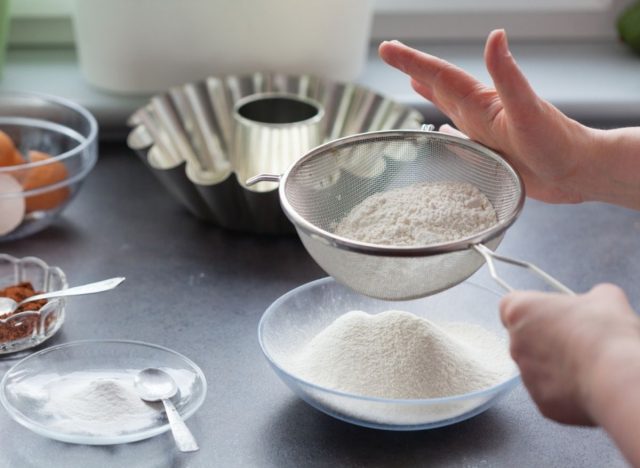
“This idea comes from a time when bags of flour often had large pieces of wheat and other things in them,” says Glasier, like bugs from improper storage. Today, you’re buying freshly milled flour, and most of it is sifted before being sold.
Soak your beans before cooking them
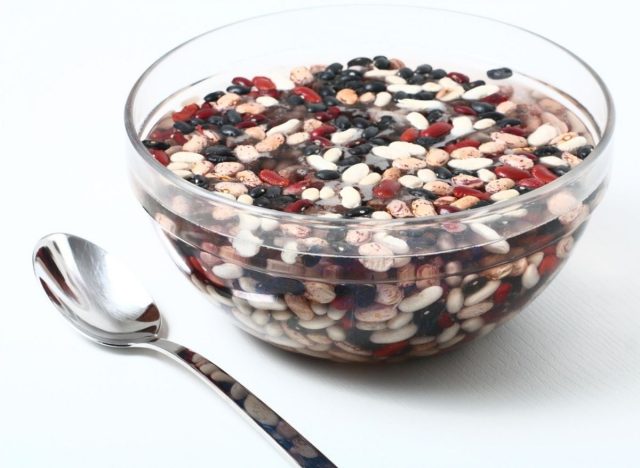
If you’re using a modern pressure cooker, you don’t need to soak your beans first for them to be tender and cook quickly, says Abi Cowell, owner of Very Veganish. “Just use your Instant Pot and you’ll have a delicious pot of beans ready to go in about an hour.”
Cut into the meat to check its doneness level
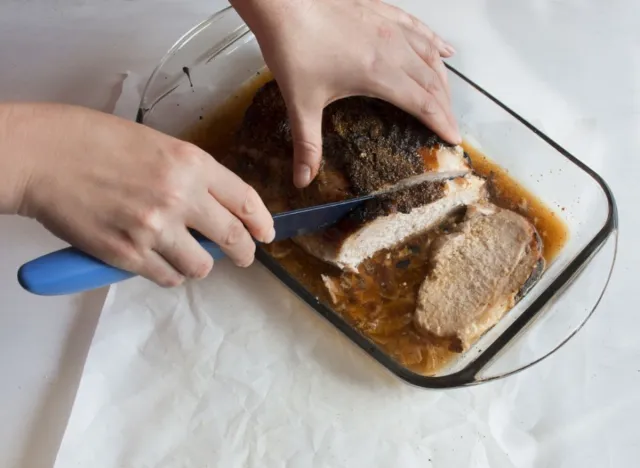
“Cutting into meat allows moisture loss, making the meat less juicy, and taking a guesstimate using your eyes could lead to eating undercooked meat and spreading food-borne illness,” says Jessica Randhawa, head chef and recipe creator at The Forked Spoon. Not using a digital thermometer is easily the most common mistake most people make when cooking meat in general, as the outside can appear to make the steak look more done than it is. “I always have a digital thermometer handy for all my cooking, especially meat, to ensure that the internal temperature is perfect for the recipe I am making. Most digital thermometers for food start at about ten dollars and have cooking temperatures printed on the thermometer, including steak’s various
doneness levels.”
A previous version of this article was originally published on April 12, 2022.